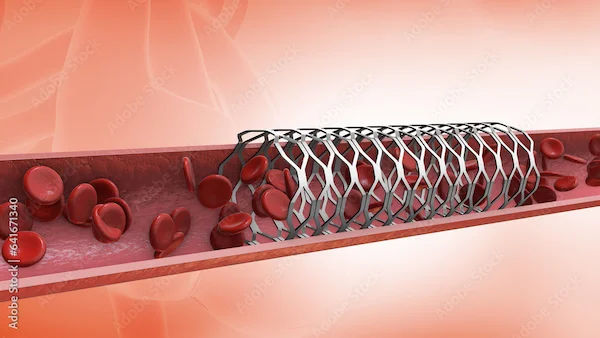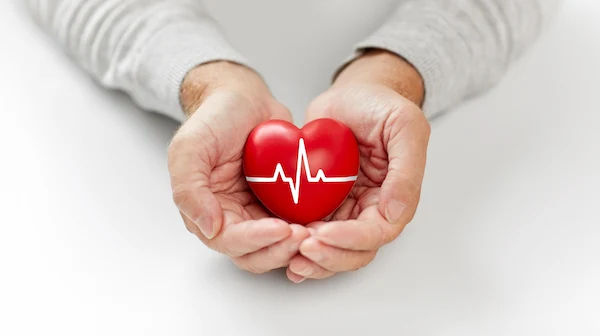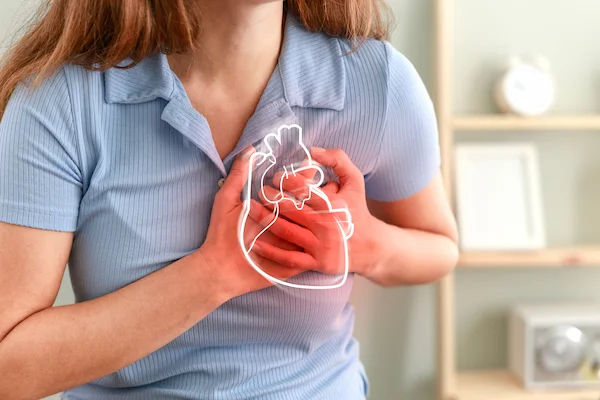- male
- 45 Years
- 29/01/2025
I've just gotten my blood test results back, and I'm a bit worried because my HDL cholesterol level is pretty low at 29 mgdl. Plus, my TCHDL cholesterol ratio is 5.2. Could you tell me what this means and how I might improve these numbers?
Answered by 1 Apollo Doctors
Low HDL cholesterol levels can increase the risk of heart disease. To improve your HDL cholesterol levels and lower your TCHDL cholesterol ratio, you can consider taking Atorvastatin (brand name Lipitor) at a dosage of 10-20 mg daily. Additionally, incorporating lifestyle changes such as regular exercise, a healthy diet rich in fruits, vegetables, and whole grains, and avoiding smoking can also help improve your cholesterol levels.
Dr. Chandra Suggests...
Consult a Cardiologist
Answered 04/07/2025
0
0

More Cardiology Health Queries
View allWhat blood pressure is high?
There are multiple reason for high BP may be due family history, kidney problems, stress and bad lifestyle.
Answered by 1 Apollo Doctors
Hey, I had a heart attack three months ago and I initially thought it was just a gastric issue, so I didn't go to the hospital right away. I was working normally until I went in for a routine check-up a few days later and they told me I had a heart attack. They did an angioplasty and put a stent in my LAD, and everything seemed to go well. Now, I'm doing a morning walk every day, around 6 km in an hour. I'm a 47-year-old guy and I'm just wondering, when would be a good time for me to go for a stress echo?
Given that you had a heart attack three months ago and have since undergone successful angioplasty with stent placement, its important to follow your cardiologist's advice for follow-up care. Typically, a stress echo is recommended several months after the procedure to evaluate how well your heart is functioning under stress and to ensure that the stent is working effectively. You should consult with your cardiologist to determine the best timing for this test based on your individual recovery and health status. Its great that you are walking daily; continue following your doctor's guidance on physical activity and medication.
Answered by 1 Apollo Doctors
So, my dad has been having this burning feeling in his feet and they found out its because of a blockage in the artery in his legs. He also has some kidney problems that we didnt know about because hes had high blood pressure for a long time without knowing it. Now theyre suggesting he gets an angiography done for both his leg and chest, and theyve started him on hypertension meds. Hes super active and has been walking for at least 2 hours every day for years without any issues. Do you think going through with the angiography and possibly angioplasty makes sense for someone his age since he doesnt really show any other symptoms?
Considering your father's age and his active lifestyle, it is important to assess the risks and benefits of angiography and angioplasty. These procedures can help in diagnosing and treating blockages in the arteries, which can improve blood flow to the legs and reduce symptoms like burning sensation in the feet. For someone with a history of undiagnosed hypertension and deteriorating kidney function, it is crucial to manage these conditions to prevent further complications. The hypertension medication prescribed will help in controlling blood pressure and protecting the kidneys. In this case, it would be best for your father to follow the advice of his healthcare provider and undergo the recommended angiography. Based on the results of the angiography, further decisions can be made regarding the need for angioplasty or other interventions. It is important to prioritize his cardiovascular health to maintain his active lifestyle and overall well-being. Additionally, it is essential for your father to continue his regular physical activity, like walking, as it is beneficial for his cardiovascular health. Ensuring a healthy lifestyle, including a balanced diet and regular exercise, is key in managing these conditions. If you have any further questions or concerns, feel free to ask.
Answered by 1 Apollo Doctors
Disclaimer: Answers on Apollo 247 are not intended to replace your doctor advice. Always seek help of a professional doctor in case of an medical emergency or ailment.




